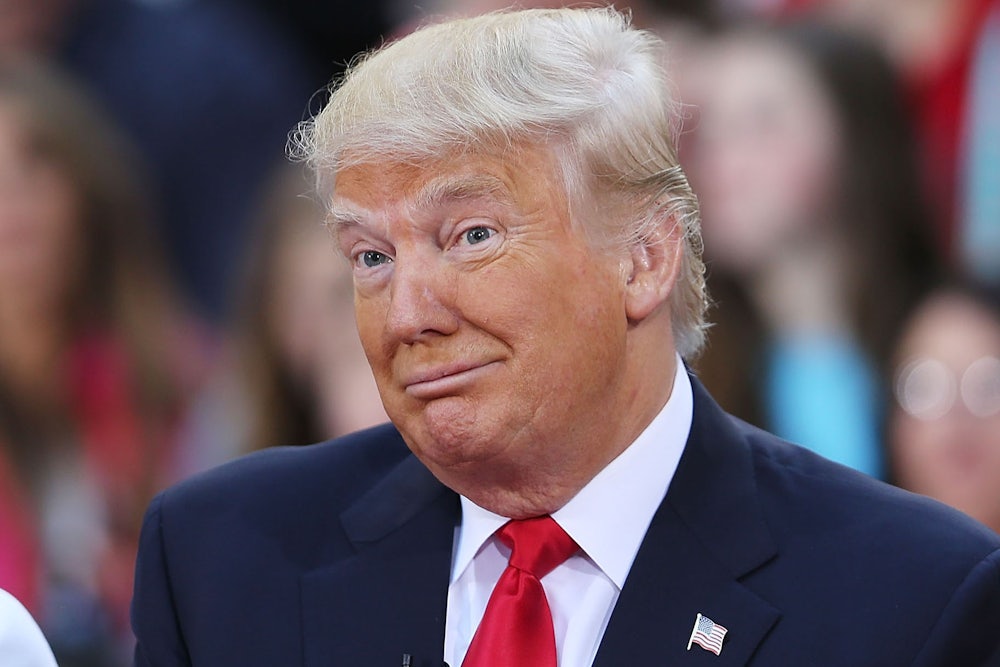It’s been one of the most persistent narratives of the last year: Whenever a damaging Trump story comes out—particularly one about Trump’s shady business practices and/or conflicts of interest—he takes to Twitter and says something heinous, absurd, or both. When Trump tweeted that the cast of Hamilton must apologize to Mike Pence, it was all a ploy to distract the media and the public from the real stories. And when Trump tweeted a dozen times about Jill Stein’s recount efforts, he was throwing sand in the eyes of the American public to keep it from reading a long, detailed, and devastating account of his conflicts of interest in Sunday’s New York Times. The same goes for his absurd claim on Sunday afternoon that he would have won the popular vote if “millions” of people hadn’t voted illegally.
Some of Trump’s detractors reverse-engineer his personality to fit the news. Depending on what’s most damaging, he can either be an ignoramus with a non-existent attention span or a genius who manipulates the media and the public with ease. There are certainly psychological explanations that help explain why Trump fixated on Hamilton and the recount—one gets at his perceived rejection by the Manhattan establishment and the other at his constant need to be validated as a winner; both suggest he has zero tolerance for dissent. It’s also possible that there is no unified Trump, that he’s just a walking collection of impulses and that his tweets reflect that.
But if there is a calculation behind Trump’s signal-boosting of seemingly negative news, I don’t think it’s a ploy to distract the public from damaging stories. Instead, Trump seems to choose negative stories that play well to his base. A bunch of Broadway actors lecturing the vice president–elect plays to the us vs. them narrative that was the basis of much of Trump’s campaign. A recount effort being led by Jill Stein (with an assist from Hillary Clinton) shows the hypocrisy of the very same elites, after Clinton and her allies spent months attacking Trump for refusing to say if he would accept the results of the election.
One of the biggest lessons of the election was that many in the media didn’t understand what animated Trump’s supporters. Trump does, and overlooking that fact suggests that, three weeks later, people still aren’t learning the lessons of the election.
